IEEE SERVICES 2021 - Plenary Panel
Advances & Challenges in Software Service Engineering
Advances & Challenges in Software Service Engineering
Thursday September 9, 5:40 - 7:00 AM UTC
As we have entered the Internet-of-Things (IoT) era, further blessed with rapid advances in several key technological areas including DevOps, AI/ML, 5G/6G/, neurocomputing, to name a few, it is imperative we think big and aim high. This new venture will require professionals in both software engineering and services computing to collaborate with an unprecedented intensity, and jointly develop the new interdisciplinary field hereby named Software Service Engineering (SSE). In SSE, the ever-deepening system dynamics emerging from both environments and humans in varying contexts are imposing steep challenges to both researchers and practitioners. Humans, both developers and the vast number of end users, are embedded ever closer to IoT environments, and are being afforded ample opportunities to continuously inject inputs during system development and after deployment. In fact, humans are increasingly playing the roles of both sensor and actuator. Traditional requirements engineering researchers are being lured more than ever into exploiting the IoT environments where human users are deeply embedded, to gather contextual information that inevitably introduces lots of ambiguity and uncertainty. Provisioning of highly adaptable and scalable microservices would be key to timely meeting ever-changing human desires and ever-evolving system requirements in the nimblest manner. As such, an ultra-agile and field-programmable development methodology and environment will be imperative to achieving such ultra-fine grained microservices provisioning. The ultimate goal in pursuit of such a noble dream will be to provide genuinely individualized and trustworthy service, possibly enabled by AI, but it should be both explainable and ethical. Facing such grand challenges, this panel is prepared to share with the audience their observations of some burning issues in SSE, and intends to bring heightened attention to an assorted array of existing, barely emerging or non-existent services computing and software engineering methods for all of us to assess, research and explore.
Panelists
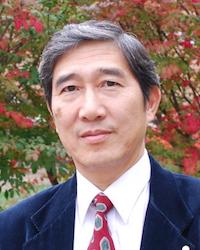
Panel Chair: Carl K. Chang is Professor of Computer Science, Professor of Human Computer Interaction and Director of Software Engineering Laboratory in the Department of Computer Science at Iowa State University where he served as its department chair from 2002-2013. He received a PhD in computer science from Northwestern University. He worked for GTE Automatic Electric and Bell Laboratories before joining the University of Illinois at Chicago in 1984, where he directed the International Center for Software Engineering. He served as Professor and Director for the Institute for Mobile, Pervasive, and Agile Computing Technologies (IMPACT) at Auburn University from 2001–2002, before moving to Iowa State University in July 2002. Chang was the 2004 IEEE Computer Society president. Previously he served as the Editor-in-Chief for IEEE Software (1991–1994) and Editor-in-Chief for IEEE Computer (2007–2010). He spearheaded the Computing Curricula 2001 (CC2001) project jointly sponsored by the IEEE Computer Society, the ACM, and the National Science Foundation. He is a Life Fellow of IEEE, a Fellow of AAAS, and a Life Member and an officer of the European Academy of Sciences. He received the 2000 IEEE Third Millennium Medal, the 2006 Bulgaria Academy of Sciences Marin Drinov Medal, and the 2012 IEEE Computer Society Richard E. Merwin Medal. As a three times winner of IBM Faculty Award, Chang's research interests include software engineering, services computing, human computer interaction and digital health. He is the founder of Situation Analytics based on his Situ theoretical framework.

Panel Chair: Zhi Jin is a professor of Computer Science and the deputy director of Key Lab of High Confidence Software Technologies (MoE) at Peking University. Her research work is primarily concerned with requirements engineering and knowledge-based software engineering. Recently, she pays more attention to the modeling of self-adaptive systems. She has been principle investigator of over 15 national competitive grants including the chief scientist of a national basic research project (973 project) of the Ministry of Science and Technology of China, the project leader of three key projects of National Natural Science Foundation (NSF) of China and the project leader of key international collaborative project of NSF China. She is the co-author of four books and author/co-author over 150 journal and conference publications. Zhi is a Senior Member of IEEE and Fellow of China Computing Federation (CCF).
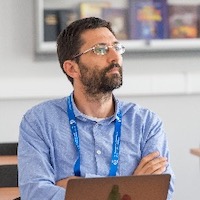
Paolo Ceravolo is an Associate Professor at the Department of Computer Science of the University of Milan. His research interests include Data Representation and Integration, Business Process Monitoring, Empirical Software Engineering, Social Interaction Metrics, Innovation Management. On these topics he has published several scientific papers and book chapters. As a data scientist he was involved in several national and international research projects and in the startup of private companies and products.
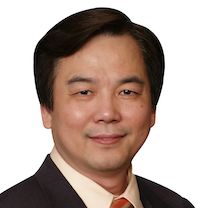
Rong N. Chang is with IBM Research, T.J. Watson Research Center. He is a member of IBM Academy of Technology and chair of IBM Research Services PIC (Professional Interest Community). He is leading an in-market R&D effort in creating an API-based enterprise microservices fabric for intelligent discovery accelerator platforms. He received his Ph.D. degree in computer science & engineering from the University of Michigan at Ann Arbor in 1990. He has received seven IBM corporate-level Outstanding Technical Achievement Awards, held 30+ patents, and published 50+ refereed technical papers in the areas of enterprise services computing. He is chair of IEEE Technical Committee on Services Computing, associate editor-in-chief of the IEEE Transactions on Services Computing, and a distinguished member of ACM. He is a steering committee member of IEEE World Congress on Services (SERVICES) and an advisory committee member of CCF Technical Committee on Service Computing. He is general co-chair of 2021 IEEE SERVICES.
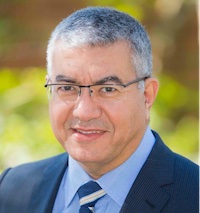
Sumi Helal is a Professor in the Computer & Information Science and Engineering Department at the University of Florida, USA, and Director of its Mobile and Pervasive Computing Laboratory. He co-founded and directed the Gator Tech Smart House, a real-world deployment project that aimed at identifying key barriers and opportunities to make the Smart Home concept a common place (creating the "Smart Home in a Box" concept). His active areas of research focus on architectural and programmability aspects of the Internet of Things, and on pervasive/ubiquitous systems and their human-centric applications with special focus on smart spaces, proactive health/wellness, patient empowerment and e-coaching, and assistive technology in support of personal health, aging, disabilities, and independence. Professor Helal served as the Editor-in-Chief of IEEE Computer (2015-2018), the Computer Society's flagship and premier publication. Professor Helal is a Boilermaker (Ph.D., Purdue University, class of 1991), Fellow of the IEEE, Fellow of the IET, Fellow of the AAAS, and a member of Academia Europaea.
 Xuanzhe Liu is now an associate professor with the Institute of Software, Peking University. His major research interests fall in distributed software systems and services. He has published over 60 referred papers on prestigious conferences such as WWW, ICSE, FSE, MobiCom, MobiSys, EuroSys, etc., and high-impact journals such as TOSEM, TMC, TSE, TOIT, TSC, and so on. He won 10 Best/Distinguished/Honorable-Mention Paper Awards. He was the recipient of IEEE TCSVC Rising Star Award, CCF-IEEE CS Young Scientist Award, etc. He regularly served as TPC members on WWW, ICSE, KDD, ICWS, etc.
Xuanzhe Liu is now an associate professor with the Institute of Software, Peking University. His major research interests fall in distributed software systems and services. He has published over 60 referred papers on prestigious conferences such as WWW, ICSE, FSE, MobiCom, MobiSys, EuroSys, etc., and high-impact journals such as TOSEM, TMC, TSE, TOIT, TSC, and so on. He won 10 Best/Distinguished/Honorable-Mention Paper Awards. He was the recipient of IEEE TCSVC Rising Star Award, CCF-IEEE CS Young Scientist Award, etc. He regularly served as TPC members on WWW, ICSE, KDD, ICWS, etc.
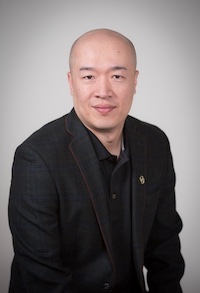 Hua Ming is an Associate Professor in Computer Science and Engineering and Director of the Laboratory of Big Data-oriented Programming Systems and Software Engineering at Oakland University.
Hua's research primarily focuses on the area of software engineering and software intensive systems, his research practice allows him to deeply incorporate computer science theory and novel programming language techniques, especially functional programming paradigm, into discovering, anaylizing, elevated understanding as well as automated composing and intelligent platform-facilitating emerging software services. He has published his research work to the top venues in his area, such as IEEE Transactions on Software Engineering (IEEE TSE). His research work has been supported by various external and internal research grants.
Hua Ming is an Associate Professor in Computer Science and Engineering and Director of the Laboratory of Big Data-oriented Programming Systems and Software Engineering at Oakland University.
Hua's research primarily focuses on the area of software engineering and software intensive systems, his research practice allows him to deeply incorporate computer science theory and novel programming language techniques, especially functional programming paradigm, into discovering, anaylizing, elevated understanding as well as automated composing and intelligent platform-facilitating emerging software services. He has published his research work to the top venues in his area, such as IEEE Transactions on Software Engineering (IEEE TSE). His research work has been supported by various external and internal research grants.